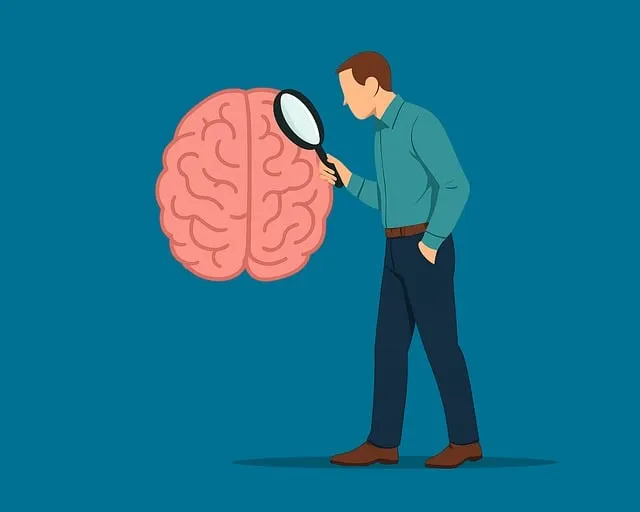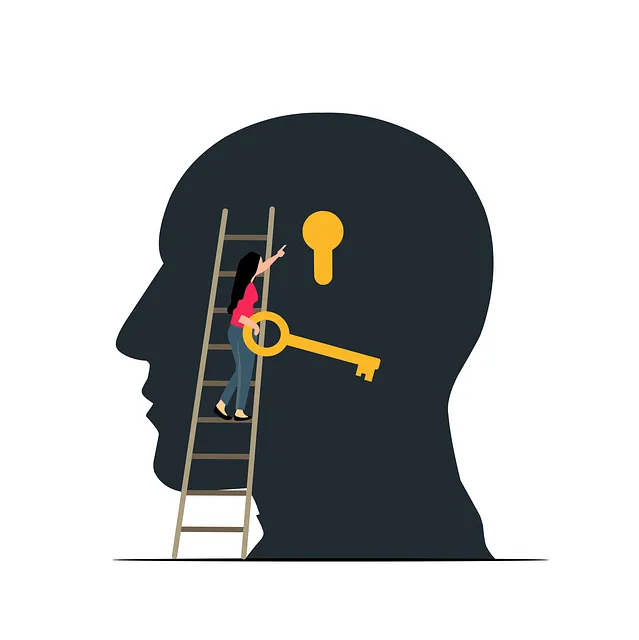Kaiser Permanente behavioral health services Boulder offers a comprehensive approach to mood regulation through evidence-based practices like CBT, mindfulness meditation, and lifestyle adjustments. Their programs target emotional well-being by teaching coping skills, mental wellness coaching, and stress management. Incorporating techniques like guided meditation, MBSR, and nutrition advice, Kaiser Permanente empowers individuals to overcome anxiety, depression, and other mental health challenges, promoting holistic mental wellness through community support groups and digital tools.
Mood regulation is a vital aspect of overall well-being, and Kaiser Permanente Behavioral Health Services Boulder offers valuable insights and resources. This article explores effective strategies to manage moods, starting with an understanding of their role in mental health. We delve into evidence-based practices like Cognitive Behavioral Therapy (CBT) and the benefits of mindfulness meditation. Additionally, we discuss lifestyle adjustments, including nutrition, exercise, and sleep, as key factors in achieving optimal mood balance. Kaiser Permanente provides support groups and digital tools, enhancing access to care.
- Understanding Mood Regulation: The Role of Kaiser Permanente Behavioral Health Services Boulder
- Cognitive Behavioral Therapy (CBT): A Powerful Tool for Managing Moods
- Mindfulness and Meditation Practices for Daily Mood Enhancement
- Lifestyle Adjustments: Nutrition, Exercise, and Sleep for Optimal Mood Balance
- Additional Resources: Support Groups and Digital Tools Offered by Kaiser Permanente
Understanding Mood Regulation: The Role of Kaiser Permanente Behavioral Health Services Boulder

Understanding Mood Regulation involves recognizing that emotional well-being is a complex interplay of various internal and external factors. Kaiser Permanente Behavioral Health Services Boulder plays a vital role in this domain, offering specialized services tailored to support individuals in navigating their moods effectively. They provide a range of evidence-based practices, including coping skills development and mental wellness coaching programs designed to enhance emotional regulation. These programs empower individuals with the tools needed to manage stress, process difficult emotions healthily, and cultivate resilience, ultimately leading to improved overall mental wellness.
Cognitive Behavioral Therapy (CBT): A Powerful Tool for Managing Moods

Cognitive Behavioral Therapy (CBT) stands as a powerful tool within Kaiser Permanente behavioral health services Boulder, offering individuals an effective means to manage and regulate their moods. This evidence-based practice focuses on identifying and challenging negative thought patterns and behaviors, which are often at the root of emotional distress. By helping folks recognize and reframe unhelpful cognitive processes, CBT empowers them to cultivate positive thinking and healthier coping mechanisms.
The approach is particularly beneficial for those navigating conditions such as anxiety or depression. Through collaboration with a healthcare provider trained in cultural competency, CBT can be tailored to meet the unique needs of diverse individuals. This personalized aspect ensures that the therapy resonates deeply, fostering greater emotional balance and overall well-being.
Mindfulness and Meditation Practices for Daily Mood Enhancement

Incorporating mindfulness and meditation practices into daily routines can significantly enhance mood regulation, as offered by Kaiser Permanente behavioral health services Boulder. These techniques encourage individuals to focus on the present moment, cultivating a deeper sense of awareness and calmness. By engaging in regular mindfulness exercises, one can learn to observe thoughts and emotions without judgment, fostering a more balanced mental state.
Meditation serves as a powerful tool for mental wellness coaching programs development, helping individuals develop resilience against stress and negative moods. Practices such as guided meditation, mindfulness-based stress reduction (MBSR), and transcriptive meditation are accessible through Kaiser Permanente’s resources, promoting not just mood enhancement but also improved overall Mental Health Policy Analysis and Advocacy. Furthermore, these practices can aid in Risk Management Planning for Mental Health Professionals by teaching individuals coping mechanisms that can be integrated into their daily lives, contributing to better mental wellness outcomes.
Lifestyle Adjustments: Nutrition, Exercise, and Sleep for Optimal Mood Balance

Maintaining a balanced mood involves more than just managing stress; it’s deeply connected to our daily routines and overall well-being. At Kaiser Permanente behavioral health services Boulder, experts emphasize the power of lifestyle adjustments as a game-changer for mental wellness. Nutrition plays a significant role; incorporating nutrient-rich foods into your diet can positively impact brain chemistry, while reducing processed sugars known to trigger mood swings.
Regular physical activity is another vital component, as exercise releases endorphins that promote feelings of happiness and relaxation. Compassion cultivation practices, such as mindful meditation and journaling, can be incorporated into daily routines to foster self-care. These practices encourage individuals to connect with their emotions, providing valuable tools for managing stress and regulating moods naturally. Additionally, prioritizing quality sleep is essential; it allows the brain to rest and reset, enhancing emotional resilience throughout the day.
Additional Resources: Support Groups and Digital Tools Offered by Kaiser Permanente

At Kaiser Permanente, we recognize that managing one’s mood and mental wellness is a multifaceted journey. Beyond individual therapy sessions, our behavioral health services in Boulder offer additional resources for those seeking support. One powerful tool is participation in support groups, where individuals can connect with others facing similar challenges, fostering a sense of community and shared understanding. These groups provide a safe space to share experiences, gain insights, and build inner strength through collective resilience.
Additionally, Kaiser Permanente leverages digital tools to enhance access to mental wellness resources. From mobile apps promoting mindfulness and stress reduction to online platforms offering personalized coping strategies, these digital solutions empower individuals to take charge of their emotional well-being. Our commitment to healthcare provider cultural competency training ensures that our services are inclusive and tailored to diverse needs, making mental health support accessible and effective for all members of our community.
In conclusion, managing mood swings effectively is a multifaceted process. As highlighted by Kaiser Permanente Behavioral Health Services Boulder, a comprehensive approach combining evidence-based practices such as CBT, mindfulness, lifestyle adjustments, and support groups can significantly enhance emotional well-being. By integrating these strategies into daily routines, individuals can achieve better mood regulation and improve their overall quality of life. Kaiser Permanente’s resources, including digital tools, offer valuable guidance for those seeking to balance their moods naturally and sustainably.






